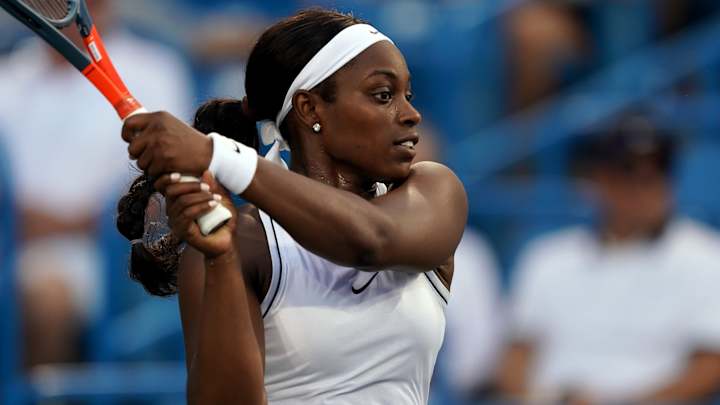Sloane Stephens on Why She Hosted a Diversity Camp for Juniors | Beyond the Baseline Podcast

On the latest edition of the Beyond the Baseline Podcast, host Jon Wertheim catches up with 2017 U.S. Open champion and WTA Players' Council member Sloane Stephens, who discusses her recent involvement with a three-day diversity camp she underwrote and helped organize in Orlando, Fla., with junior players from around the country who missed out on grants from the USTA. Stephens talks about her experience with the camp in 2005 and why it was important for her to host it, as well as race and diversity in tennis today, how she balances mentorship and competition in the sport, her outlook on the 2020 season and much more.
Jon Wertheim: You were in Orlando last week, though, and it was not necessarily to train. What were you doing there?
Sloane Stephens: We were doing our multicultural camp. The last time I did it was in 2005 and I really wanted to bring it back. I've talked about it for years. I talked to a lot of people just trying to get them to get feelers out and see if anyone wanted to help or partner or whatever and no one wanted to do with me. So I just decided this year that I was going to bring it back, no matter what the cost. And I was going to go ahead and do it. And honestly, it was like the most rewarding thing that I've done this year and probably in a couple of years.
We had 20 kids, 20 parents—all kids who got selected from them not getting grants or like performance grants from the USTA or from their section. And we had them all come. We did parent seminars. We did life coaching. We did mental strength and nutrition. We did fitness. We did everything. And it was just like three and a half days of a lot of information and helping the parents. Like my mom was there.
I know that there's a lot of kids out there who just don't have that many resources or there's no way for them to get the information. So I wanted to be that source for them to still be able to get the information and still be able to succeed, even if you are not the No. 1-ranked player in the country. It was so much fun.

Jon Wertheim is a senior writer for Sports Illustrated and has been part of the full-time SI writing staff since 1997, largely focusing on the tennis beat , sports business and social issues, and enterprise journalism. In addition to his work at SI, he is a correspondent for "60 Minutes" and a commentator for The Tennis Channel. He has authored 11 books and has been honored with two Emmys, numerous writing and investigative journalism awards, and the Eugene Scott Award from the International Tennis Hall of Fame. Wertheim is a longtime member of the New York Bar Association (retired), the International Tennis Writers Association and the Writers Guild of America. He has a bachelor's in history from Yale University and received a law degree from the University of Pennsylvania. He resides in New York City with his wife, who is a divorce mediator and adjunct law professor. They have two children.
Follow jon_wertheim